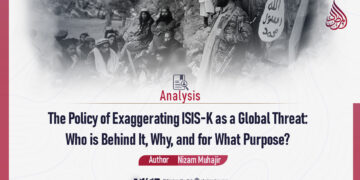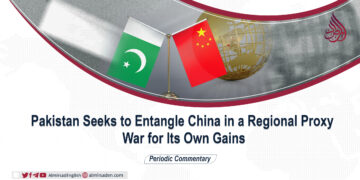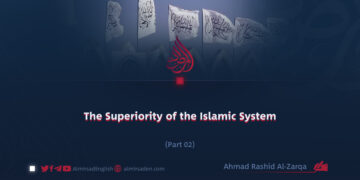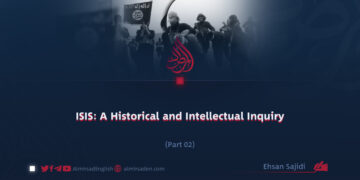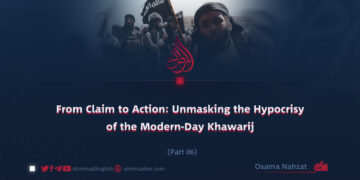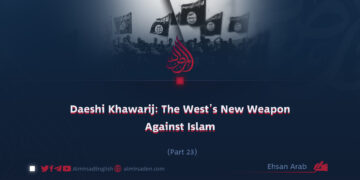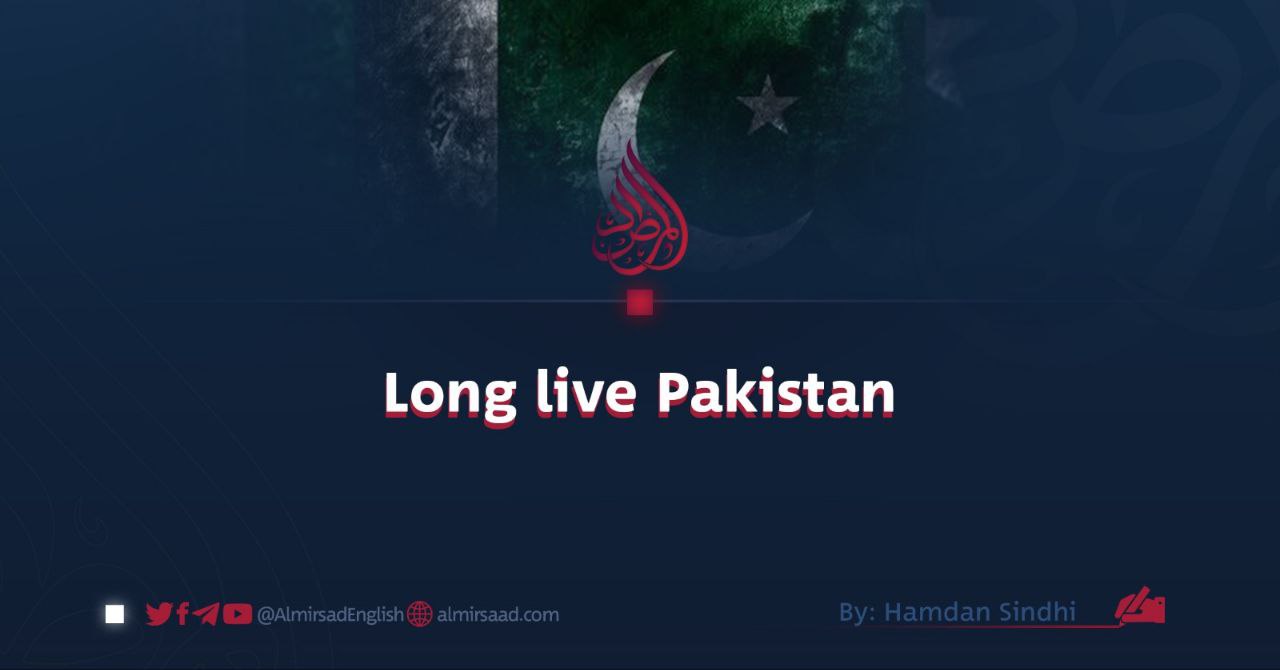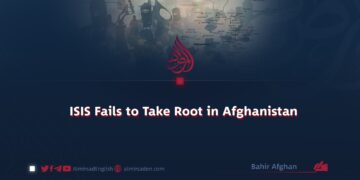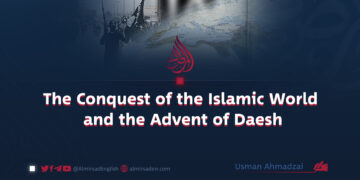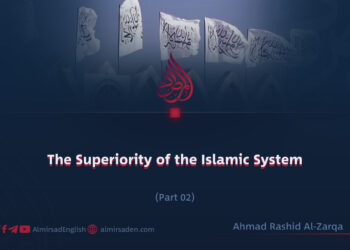By: Hamdan Sindhi
Afghanistan and Pakistan are two neighboring countries; they share geography, emotions, language, culture, belief, and religion. There are a few ways of separation, but there are hundreds of reasons for unity. However, there are discussions regarding the presence of feelings and animosity towards Pakistan among Afghans in Pakistan. We attribute blame to Pakistani Afghans, although we have never thoroughly analyzed this topic.
Since the inception, there has been a longstanding misconception that Pakistan poses as an adversary to Afghanistan and opposes the establishment of a robust and centralized government in Afghanistan, purportedly at its own expense. This notion was crafted and propagated by individuals who were subservient to republics and crusaders, with the intention of manipulating the emotions and loyalties of the ordinary and patriotic Afghan populace. Through this deceitful agenda, the aim was to alienate these individuals from the Afghan Mujahideen who were actively resisting the Soviet and Crusader intruders, or to sway them into becoming their own defenders.
The necessity to establish an anti-Pakistan narrative emerged due to the lack of rational justification by Soviet and Crusader colonialists who sought to exploit the youth of Pakistan along with their slaves. The foreign invaders, including the Afghan slaves of the 1960s, propagated extensive misinformation against Pakistan, leading many to overlook the invasion, devastation, and atrocities committed by the Soviet Union and the Crusaders. Despite this, individuals stood against the puppet governments in their unattainable goal to seize control of Pakistan, resulting in the loss of millions of lives in the process.
They were so intoxicated with hostility towards Pakistan that they did not realize that in this state of intoxication, they were inadvertently harming their Afghan Mujahideen brethren, who had selflessly sacrificed their lives for the betterment and liberation of Islam and Afghanistan.
But these young individuals cannot be deemed as simplistic; convincing someone to sacrifice their life is no easy feat. Genuine and compelling arguments are essential. If I were to hypothetically adopt an Afghan perspective and perceive the conflict in Afghanistan as crucial for the defense of Pakistan, I would argue that Pakistan’s survival is intricately linked to the situation in Afghanistan.
Leveraging proxy armies and fighters for Pakistan’s national interests at the expense of Afghanistan’s national interests can stir patriotic sentiments. However, such sentiments can also lead individuals to overlook certain realities.
If any Afghan suspect that Pakistan, through some of its tactics and propaganda, is strengthening false ambitions, leading the people who have been influenced by colonialism to capture the sentiments and feelings of Afghans and their youth. As a result, on one hand, they have caused the deaths of millions of people on this path; on the other hand, they have martyred leaders of Afghan Jihad who fought against the world powers. They have also captured, arrested, killed, and exploited individuals for minor worldly gains, including information about the righteous.
By selling the hands of the infidels, Pakistan aims to keep the fire burning in Afghanistan, ensuring that another fire does not arise in the neighboring areas, fresh, burning, and deadly.
I believe that the complaint made by the Afghan brother is valid, and his resentment is justified, as Pakistan does not recognize itself as having the right to do so.
I am confident that these individuals responsible for the killings will be brought to justice, and at that moment, it will be incumbent upon the citizens of Pakistan to uphold the truth.
After the defeat of the Soviet occupation, Pakistan took on a leadership role in the civil war in Afghanistan, doing so in accordance with Western guidance.
It systematically supported the Mujahideen in order to advance its own political and personal interests in the struggle against the Soviet occupation.
Similarly, following the defeat of the crusaders, Pakistan is currently engaged in a conflict with Afghanistan at the direction of Western powers.
Otherwise, what is the issue for the Pakistani government with the current system in Afghanistan? It can be argued that the problem of Pakistani Taliban has intensified, however, given the shifting Pakistani policies towards the West, recent diplomatic and security challenges involving China and Iran, regional conflicts with neighboring countries, and the emergence of ISIS instigated by Western forces, it is implausible to suggest that the strong relationship between these two nations could be fractured on such flimsy grounds, unless it serves the personal interests of military officials.
Why should Pakistan sacrifice the interests of this great nation, which are with Afghanistan?
Similarly, the solution to the TTP issue with Afghanistan in the way the Pakistan Army wants is not reasonable but impossible.
Pakistan is therefore insisting on an unreasonable solution to this major issue in order to trap the Islamic Emirate in a war with its old allies and sit back and watch the spectacle, such that the Afghan government takes any action against the Pakistani Taliban that Pakistan demanded.
Not only that, the mentality of Afghans that has been nurtured by the slaves of the Crusaders for the past twenty years (that the Taliban are slaves to Pakistan) criticises the government, but rebellions are likely to break out.On the other hand, the Pakistani Taliban should also turn their guns towards them.
At a time when the Afghan government has no friends in the whole world, the whole world including Pakistan is trying to topple this government by any means, how can it be reasonable in the world of reasons that the whole world Enmity with all Muslims with enmity, make friends also enemies.
Pakistan’s airstrikes on Afghanistan, a violation of the territorial integrity and airspace of a country that has just emerged from war and has high hopes and expectations from Pakistan, are unjustified, and neitherThe bombing of Afghanistan can change the mindset of the Pakistani people. The only justification for this is that the army is taking steps at the behest of the West that are meant to provoke a major war.
Such a war may not destroy Afghanistan, but it will further sink Pakistan’s sinking fleet, resulting in a huge loss to the Pakistani people and government. The benefits will be shared by some hired assassins of the army.
Finally, let us say that this tradition that has been established and propagated in Afghanistan regarding Pakistan, for the above and many other reasons, is not in vain; we have not treated Afghanistan as a friend.
What, and whatever favours we shower on them, were strategic, political, and temporary and not based on good intentions.
Also, we did not make any real effort to counter the popular anti-Pakistani tradition in Afghanistan, nor did we consider it necessary or important to win the hearts and minds of Afghans, our rulers, with all their pomp and circumstance.
Unequal and uncompetitive nation-building, and not considered capable of manipulating their minds, it is quite possible that Pakistan is hostile to Afghanistan as a slave of the West and an active mercenary in the region.




